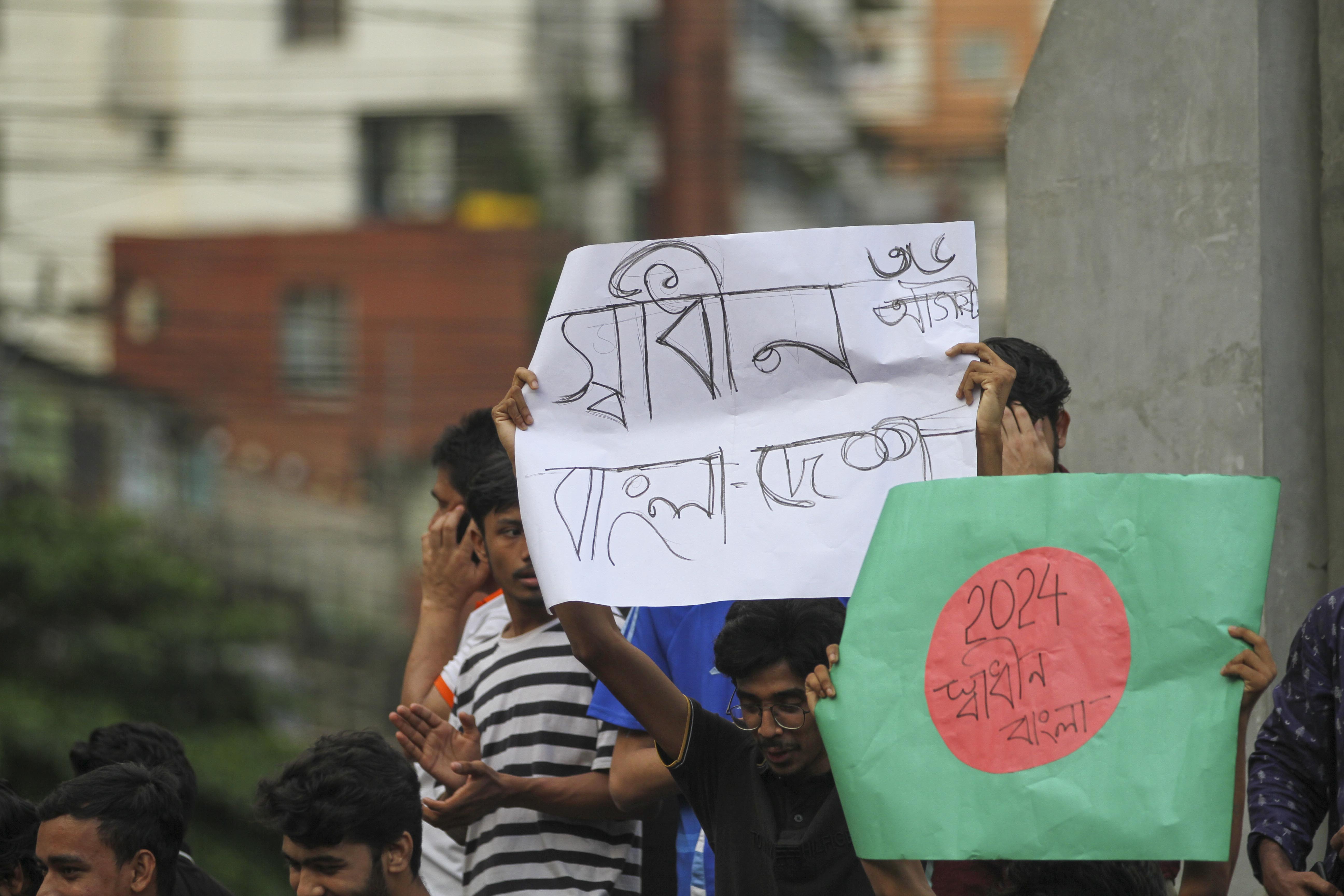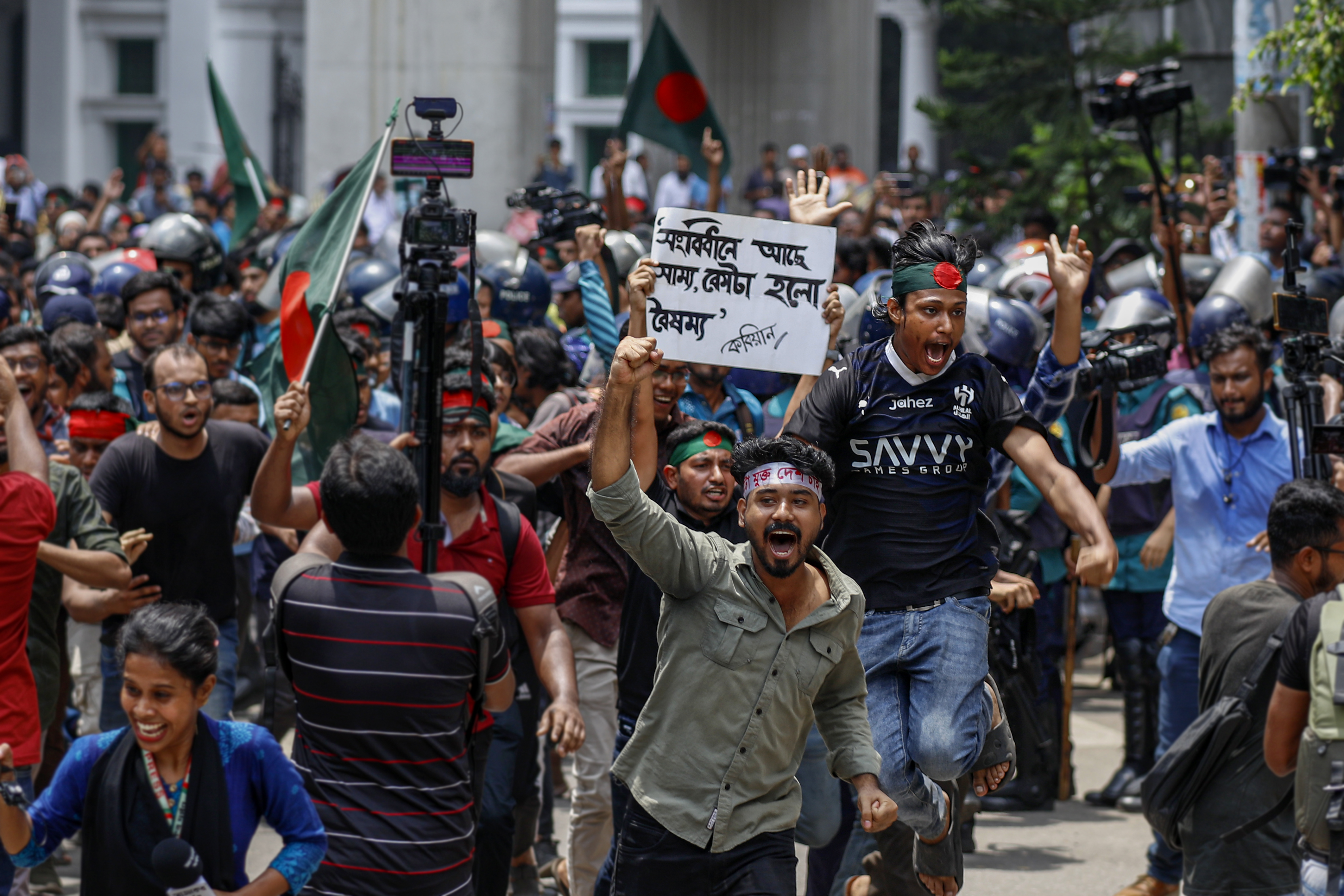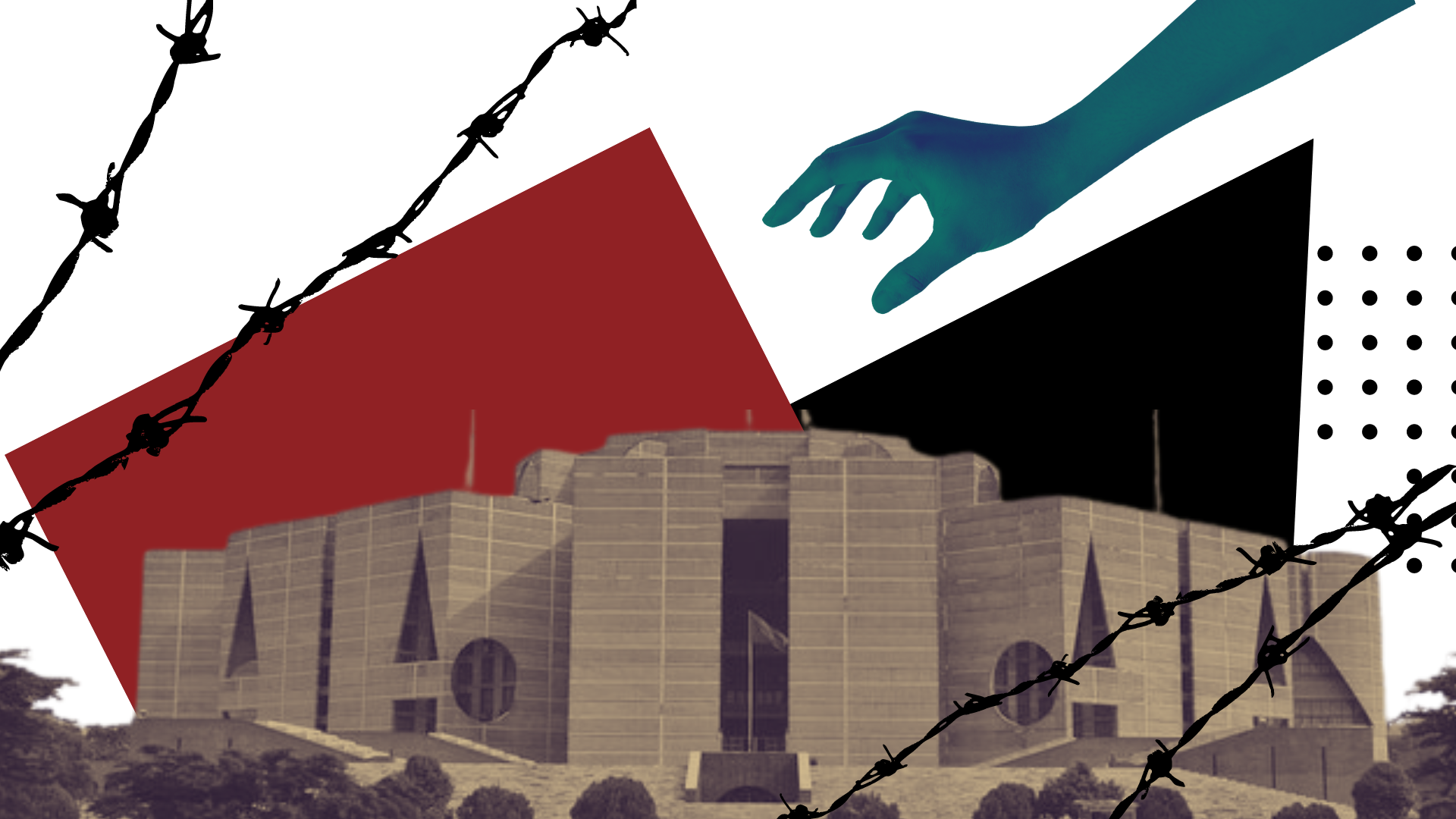Bangladesh’s path to principled governance

The 2024 uprising and the regime's exit were dramatic. While the country has seen other uprisings in 1952, 1969, and 1990, each unique in its own way, the current situation is still evolving. It is too early to determine what lessons can or can't be learned from similar uprisings in Tunisia, Egypt, and Sudan. The question isn't just about drawing inspiration from these examples but understanding what will work in Bangladesh and why. Many ideas abound, but which ones will work in Bangladesh?
Diagnosing the problem
There is a deep and growing disconnect between the elites and the vast majority of Bangladeshis—a gap that has widened over the decades. But this divide isn't just economic or cultural; it's moral. The moral fabric of the nation has been ruptured, with integrity taking a backseat to self-interest and corruption.
This disconnect is perhaps best captured by the metaphor of the "sheeter pakhee"—a term often used to describe expatriates, who return to Bangladesh when it's convenient, much like snowbirds who migrate to warmer climates during winter. To those who live through the harsh realities year-round, western expatriates are seen as outsiders who swoop in and out, offering opinions and solutions without truly understanding the day-to-day struggles of the common people.
The "sheeter pakhee" metaphor also reflects the behaviour of many elites within Bangladesh who, much like the rich family in the film Parasite, have detached themselves from the realities of the common people, living in a bubble of privilege. These elites have often acted as parasites, thriving off the resources and labour of the masses while contributing little to the well-being of the broader society.
Many Bangladeshi elites have funnelled billions of hard-earned foreign currencies—earned primarily from the remittance of expatriate labourers and the sweat of ready-made garment workers—into securing their "second home" in a foreign land, whether it be in Dubai, the United States, Canada, or elsewhere. This parasitic relationship has only exacerbated the divide, creating a system where the few prosper at the expense of the many.
Ahmed Sofa, a revered Bangladeshi writer, highlighted this disconnect years ago, noting how the urban elites, who wield significant power, have become increasingly detached from the realities of the common people. These elites are more foreign in Bangladesh than foreigners or expats. This detachment has only grown as technology and social media have made the lifestyles of the elite more visible, amplifying the sense of injustice and inequality.
Over the years, this divide has become more pronounced. The elites have funnelled their looted wealth into securing foreign havens, while the common people have struggled to survive on meagre incomes. This isn't just about money; it's about the erosion of a shared national morality. As my late father often remarked, "The question isn't which elite can be bought, but at what price." This sentiment reflects a broader decline in values where almost anything—and anyone—can be bought.
Reflecting on this decline, it's important to remember where Bangladesh started. In 1976, a book titled Bangladesh: The Test Case of Development captured global attention. At that time, many feared Bangladesh wouldn't survive as an independent nation. Yet, after a famine, several military coups, catastrophic floods, and disastrous cyclones, Bangladesh not only survived but has prospered, defying the dire predictions of the 1970s.
So, how did Bangladesh transition from a "test case" to a model of development, ingenuity, and resilience? The answer lies in the collective spirit, adaptability, and resilience of its people—qualities that must now be harnessed to address the moral and institutional crises that threaten to undermine these hard-won gains. This moral decline has seeped into the very core of Bangladesh's institutions, leading to widespread cynicism and a loss of trust in those who are supposed to lead. The disconnect between the elite decision-makers and the common people is not just a symptom; it's a crisis.
Thesis-antithesis-synthesis
Imagine a new Bangladesh by first acknowledging the extent and impact of this disconnect. The prevailing thesis is that the problems stem from autocratic governance, while the emerging antithesis suggests that democracy will solve all issues. However, democracy isn't a cure-all. Aristotle recognised this dilemma thousands of years ago—democracies can become tools for the elites, oppressive to the common people.
There are broadly two types of democracies: 1) where foundational principles like the rule of law, popular sovereignty, and the separation of powers are upheld; and 2) where these ideals are abused. Bangladesh, despite 12 national elections, falls into the latter category. The 2024 uprising was a manifestation of the people's frustration with a system that served the elites.
Even the first type of democracy is not without its flaws. Take the United States, for example, where basic rights are more or less secured, but the democratic process is heavily influenced by elite interests. Lobbyists wield significant power, and incumbents enjoy an overwhelming advantage, with re-election rates often exceeding 90 percent. This raises questions about how much power truly resides with the people.
What can Bangladesh learn from other recent uprisings? For example, what happened in Tunisia between 2011 and 2024, why the Islamic Brotherhood in Egypt only stayed in power for 300 days after overwhelmingly winning a fair election, and why a massive popular uprising in 2018 in Sudan led to a brutal civil war?
By carefully examining examples of the two types of democracies in other countries and focusing on actionable, context-specific strategies, Bangladesh can synthesise a governance model that works for its people—Boishamma Birodhee Jonogan (BBJ)—a regime that upholds equity, inclusion, and justice while remaining pragmatic in its implementation. This is where the idea of principled pragmatism comes into play. The BBJ model must be rooted in core principles like fairness and justice, but it should also be adaptable. This approach requires flexibility in applying principles to real-world situations, ensuring that interventions are not only ideal in theory but also viable in practice.
Two actionable ideas
With BBJ, it is crucial to question both the thesis of autocracy and the antithesis of democracy, and instead, imagine a synthesis that mirrors President Lincoln's ideal of a government "of the people, by the people, for the people."
Assuming unbridled corruption and a compromised judiciary as two of the most pressing issues, two actionable ideas can be suggested. First, a community protection platform could incorporate the principles of an ombudsman. An independent and empowered Office of Ombudsman can play a pivotal role in curbing corruption. For instance, in Tanzania, the Prevention and Combating of Corruption Bureau has made significant strides in reducing corruption. Similarly, the Philippines' ombudsman has been instrumental in holding public officials accountable, with the office being responsible for the prosecution of several high-profile corruption cases. In Bangladesh, such a platform could not only serve as a watchdog but also actively engage citizens in reporting corrupt practices.
Second, the judiciary in Bangladesh must be strengthened to ensure its independence, transparency, and accountability. The judiciary needs to be independent from and accountable to the other branches of government. For example, in South Africa, the Constitutional Court has played a crucial role in safeguarding democracy by making landmark decisions that uphold the constitution, even against the wishes of powerful political figures. In Bangladesh, judicial reforms may focus on: a) introducing a more transparent and merit-based judicial appointment process, similar to the Senate confirmation process in the US; b) developing mechanisms for greater transparency in judicial proceedings, such as publishing court decisions, detailed opinions including majority, and dissenting opinions; and c) providing a clear mandate to the judiciary to prevent it from being co-opted by political parties.
In designing and implementing these reforms, the BBJ needs to recognise that any reform will require creative thinking and the fallibility to admit that many initial interventions may not work as anticipated. This means being flexible to adapt to changing circumstances and learning by doing to continuously improve processes and mechanism that serve the interests of all citizens. I invite all to suggest actionable ideas, using real-world examples, on how best to initiate a systemic reform in Bangladesh with trackable and measurable impacts. With collective input and wisdom, at this opportune time, it is possible to create a BBJ Manifesto of governance that is neither autocratic nor democratic but a synthesis of both. Such a synthesis must focus on crafting and safeguarding institutions that are independent, principled, and pragmatic.
Shafiqul Islam is director of Water Diplomacy, professor of civil and environmental engineering and professor of Water Diplomacy at the Fletcher School of Law and Diplomacy at Tufts University in the US.
Views expressed in this article are the author's own.
Follow The Daily Star Opinion on Facebook for the latest opinions, commentaries and analyses by experts and professionals. To contribute your article or letter to The Daily Star Opinion, see our guidelines for submission.




 For all latest news, follow The Daily Star's Google News channel.
For all latest news, follow The Daily Star's Google News channel. 


Comments